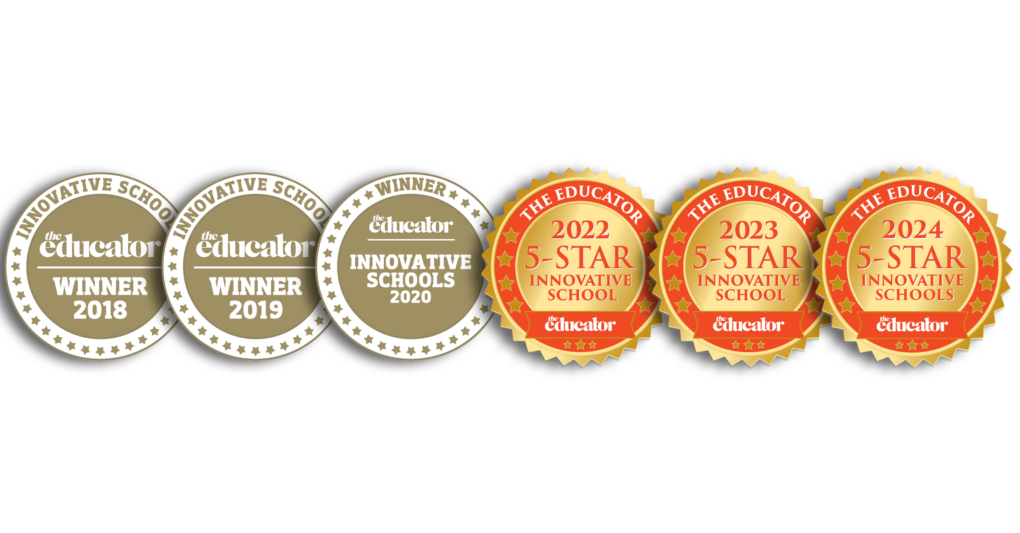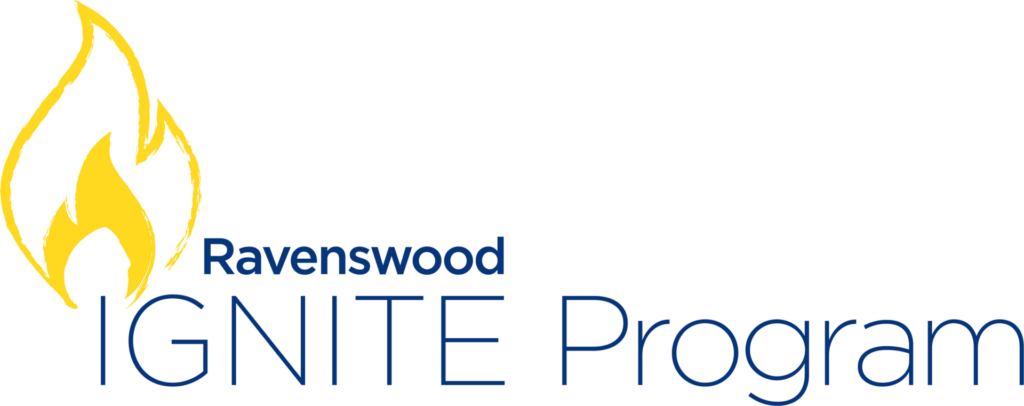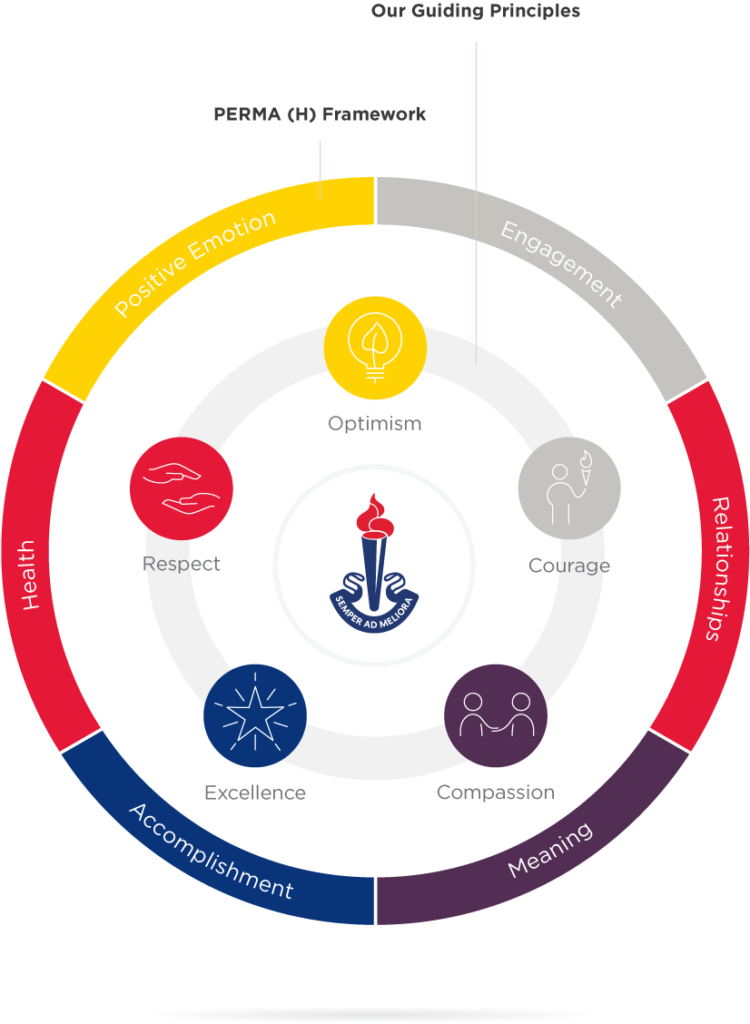Ravenswood is recognised globally as a leading girls’ school in Positive Education.
It was the first school in NSW to implement a Visible Wellbeing approach to Positive Education under the guidance of Professor Lea Waters, Founding Director of the Centre for Positive Psychology at the University of Melbourne and a past President of the International Positive Psychology Association.
Our pioneering Visible Wellbeing approach and wellbeing program form a multi-layered system of support and guidance. This is provided by highly qualified and experienced educators including Class Teachers, Year and Stage Coordinators, Deputy Principal – Head of Junior School, and the Head of Positive Education K–12.
The School Chaplain, Psychologists, Learning Enrichment team, our therapy dogs Daisy and Penny, and the Health Care Unit are also available to our girls for support, guidance and advice.
An Award-Winning Approach
Ravenswood has won numerous awards for its innovative Positive Education curriculum and wellbeing programs.
Principal Mrs Anne Johnstone is also an internationally recognised educational leader, renowned for her pioneering work in Positive Education and the wellbeing of young people. She is the Chair of the International Positive Education Network (IPEN) – the peak global body of wellbeing science-in-education practitioners and the former Chair and a founding Board Member of the Positive Education Schools Association (PESA).



Our innovative and evidence-based program, IGNITE (Inspiring Girls and Nurturing Individuals Through Empowerment), equips all Junior School students with a toolkit of Positive Education and wellbeing strategies to enable them to thrive, academically and personally.
The program includes a tailored Positive Education curriculum from Prep to Year 6. This draws upon Professor Waters’ SEARCH Visible Wellbeing Framework (Strengths, Emotional Management, Attention and Awareness, Relationships, Coping, Habits and Goals).
It also draws on the PERMA(H) model created by one of the founders of Positive Psychology, Professor Martin Seligman, Ravenswood’s inaugural Psychologist-in-Residence. Professor Seligman’s acronym stands for Positive Emotions, Engagement, Relationships, Meaning and Accomplishments, with Ravenswood adopting ‘H’ for positive ‘Health’ as its sixth element.

Integrating Positive Education
The curriculum aims to empower students with skills and knowledge to understand and enhance their own wellbeing using the evidence-based research of Positive Psychology and neuroscience.
The intended outcome is that each student knows how to look after and improve their wellbeing, cope with adversity, cultivate their strengths, and develop their relationships and friendships by applying practical skills and an understanding of the benefits of pro-social behaviour.
Junior School students have one Positive Education lesson and a 30-minute session of ‘experiences’ (such as mindfulness or gratitude exercises) weekly. Positive Education language is used across all subjects and in the playground to help reinforce wellbeing literacy.
There are also student-led initiatives within the curriculum, encouraging student-agency in Positive Education. For example, Year 6 students have created and taught Positive Education activities to their younger buddies through the Buddy Program, and Year 2 girls have created a gratitude concept (writing notes each morning about something they are grateful for and storing these in individual gratitude jars).
